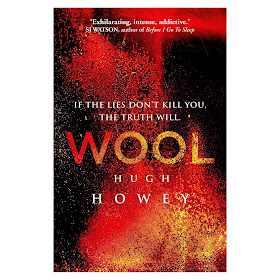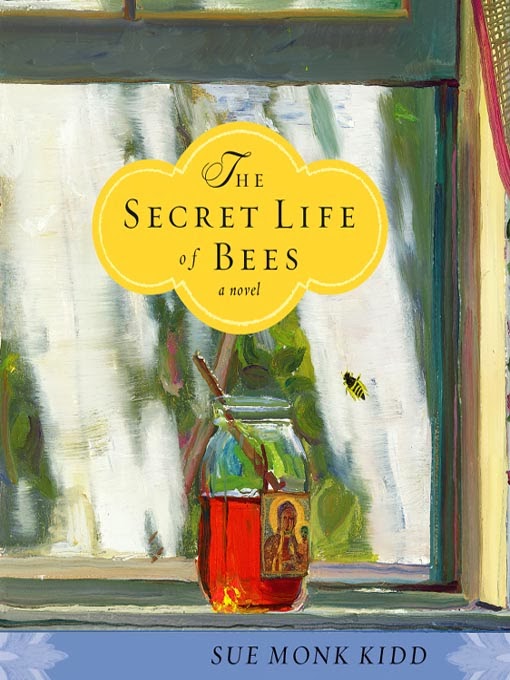This book was a CBR recommendation and I wasn't disappointed. In fact, I'm calling it now as one of my top five books for the year.
Nothing to Envy is based on the lives of North Korean defectors, whom Demick reported on extensively during her time working as the Los Angeles Times Bureau chief in Korea. Her book focuses on six individuals, all from Chongjin. It is beautifully written, at times reading like a fictional novel rather than a journalistic work of non-fiction. Sadly, but intriguingly, the book also read like a YA dystopian drama when Demick described the facts of life that are socialism in North Korea.
From her descriptions of the rationing of food and electricity to the requirement that citizens must apply for travel permits even to travel within the county, I realized how truly naive I was about other parts of the world, for I couldn't fathom a society quite like she described. Demick describes buildings with elevator shafts build into them, but no elevators; cities outfitted for electricity that went unused all but a few hours of the day; sporadically run railroad lines; empty factories; and employees who worked unpaid, but for the promise of additional rations, when they became available.
 |
| NASA image of the Korean peninsula. |
Reading about the capital city, Pyongyang, was reminiscent of reading about the Capitol City of Panem in the Hunger Games. Only the elite were allowed to live and study in Pyongyang. They received more food and electricity than others elsewhere. This is also where foreigners visited, so the regime went to "great length to ensure that its inhabitants make a good impression with their appearance and are ideologically sound." Demick herself felt that when she visited as a journalist, people would be placed in certain areas and in certain outfits to create a false idealistic image of the country.
Demick gives antecdotes here and there that are at times hilarious and disturbing. One of my favorites is her description of typical math word problems. "Three soldiers from the Korean People's Army killed thirty American soldiers. How many American soldiers were killed by each of them if they all killed an equal number of enemy soldiers?" Or one of the songs taught in music class...
"Our enemies are the American bastards
Who are trying to take over our beautiful fatherland
With guns that I make with my own hands
I will shoot them. BANG, BANG, BANG."
And the propoganda. Oh the propoganda. The posters throughout the country with the smiling face of Kim Il-Sung, the public address systems installed in buildings for government announcements, the people hired to drive through the streets announcing how well companies were doing and how hard everyone should work. Citizens not only worked for the state at day jobs, they also attended ideological training before and after work. It was exhausting just to read about.
Then there were the community groups and meetings...each person was a member of their neighborhood inminban. This was basically a system whereby neighbors looked out for criminal activity or political disobedience. Even a quick, sarcastic comment could sentence a person to a prison labor camp. No one dared speak ill of the government for fear that an overly zealous neighbor would report them. This bred a culture in which people would say and do things for no reason other than to give the impression that they are law abiding, loyal citizens. Demick writes about people who would add things to letters to show how much they loved their country and the "Supreme Leader" for the sake of the government censors.
Demick also details the mass hysteria that gripped the country when Kim Il-sung died. Some people were truly hysterical. But for those who had doubts, they knew that if they didn't show the "appropriate" response to his death, it could mean time in a prison camp. So even those who defected, who were disullusioned with the country's politics, found themselves crying tears for a man they didn't respect.
Of course, Demick covers the famine of the 90's, where hundreds of thousands of North Korean citizens (if not millions) died of starvation. The country's leaders had campaigns like the "Let's eat two meals a day" campaign early in the food shortage. Enrollment in school dropped precipitously as children died of starvation. By 1995 the frog population of North Korea was wiped out due to overhunting. Families took to fields and forests to gather weeds and moss and learned to cook indigestible food longer to make it more palatable.
Demick chronicles the lives of six individuals, all from the same city, but with a spectrum of background stories. There is Mrs. Song, a true believer of the Juche self-reliance ideology and occasional leader of her inminban. Mrs. Song religiously polished her state-issued pictures of Kim Il-Sung and his son, Kim Jong-il with the state-issued polishing cloth (not making this up). We also learn about Oak Hee, Mrs. Song's rebellious daughter. Perhaps my favorite story line was that of Mi-ran and Jun-sang, secret sweethearts who could never get married because of the "sins" of Mi-ran's father's past. His role in the South Korean army during the Korean war gave his family bad songbun, or social status, that lasted three generations. There is also Kim Hyuck, an orphan whose actions were motivated by hunger, rather than state loyalty, and Dr. Kim, who learned after defecting that dogs in china ate better than doctors in North Korea. Through Dr. Kim, Demick describes the effects the food shortage of the 90's on the North Korean citizens. Pellagra, acute constipation, and stunted growth, among other ailments afflicted her patients. The hospital also suffered, no longer offering heat or even IV bags to its patients, who would bring empty bottles of beer in which to put the fluid.
From these individuals, we see orphanages, black markets, schools, hospitals, and the day to day lives of a varied cross section of North Koreans. Demick gives us a general history of the politics and demography of Korea, she describes the indoctination of the Juche ideology so well that we, in a small way, understand the motivations of the individuals when they eat while children around them starve. Or when they fear for their futures when they can't shed a tear over Kim Il-sung's death. Or when they make the life-changing decision to leave North Korea forever.
Nothing to Envy is about more than you think. It's not just a retelling of the strange and infuriating things about North Korea that make us glad to be Americans. It's also about the pride of the North Korean people, many who truly believe they have nothing to envy from the rest of the world. It's this second thing that is harder to grasp, but perhaps by reading this book, you'll be a step closer to understanding it.

























